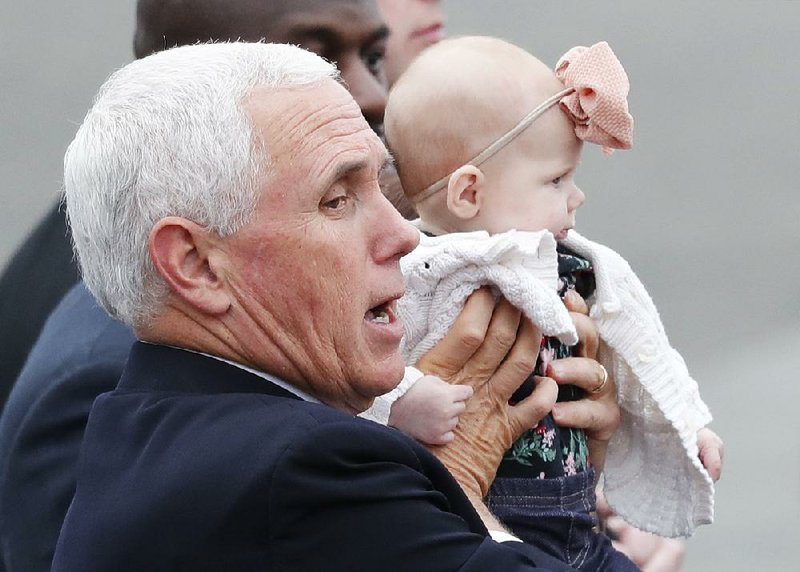TOKYO -- U.S. Vice President Mike Pence and Japanese Prime Minister Shinzo Abe on Tuesday showcased their countries' alliance, reaffirming the need to keep sanctions on North Korea to achieve its denuclearization. But Pence also urged Japan to do more to reduce the U.S. trade deficit.
Pence and Abe also agreed to deepen cooperation on promoting energy, on infrastructure and on providing loans to nations in the region.
Pence said the U.S.-Japan alliance is a "cornerstone" of the region's peace and prosperity and that Japan is not only an ally but also a friend. But he said Japan needs to do more to reduce the trade imbalance.
"Japan is an indispensable trade partner for the United States," he said. "The United States has had a trade imbalance with Japan for too long."
U.S. products and services often face barriers to compete fairly in the Japanese market, Pence said. He said economic dialogue over the past two years has addressed some issues, but "the best opportunities for free, fair and reciprocal trade will come in a bilateral agreement."
Abe and President Donald Trump agreed in September to start bilateral free-trade talks, which are expected to begin early next year.
Japan has faced demands that it reduce its trade surplus with the U.S., and it is also concerned about the effects of Trump's trade war with China.
Pence also said he expected Japan's increased "investment" in stepping up the country's defense. Yasutoshi Nishimura, Japan's deputy chief secretary, told reporters that Japan limited defense purchases to necessities.
On Tuesday, Abe said Japan is willing to expand trade and investment "to make it mutually beneficial for Japan and the U.S. in order to seek free and open economic development in the Indo-Pacific region under fair rules."
Pence said in a recent opinion piece in The Washington Post that America will soon begin negotiations for "a historic trade agreement with Japan."
Trump's administration has made trade agreements with South Korea, Mexico and Canada. Pence wrote that the new trade deals "will put American jobs and American workers first."
Pence and Abe gave reassurances of their cooperation on North Korea's denuclearization.
Pence said the U.S. will continue to put diplomatic and economic pressure on North Korea and urged all Indo-Pacific nations to maintain pressure and sanctions until the complete denuclearization of North Korea is achieved. Abe said Japan and the U.S. will continue to work together to get North Korea, which he said has hard-working people and rich resources, to realize it has a bright future if it keeps its promise.
North Korea has embraced diplomacy this year after its missile and nuclear tests escalated tension and fears of war, but Japanese and U.S. officials remain skeptical that the North will actually abandon its nuclear weapons, suspecting that Pyongyang may only be trying to have sanctions eased.
On China, Abe talk about recent improvements in Japanese-Chinese relations, as demonstrated by his visit to Beijing for a summit with President Xi Jinping. Pence said the U.S. wants a relationship with China based on fairness and reciprocity and that Japan and the U.S. will continue to cooperate closely to deal with China's increased influence in the region.
Pence was to leave later Tuesday to attend a meeting of the Association of Southeast Asian Nations in Singapore and an Asia-Pacific Economic Cooperation summit in Papua New Guinea.
A Section on 11/14/2018
